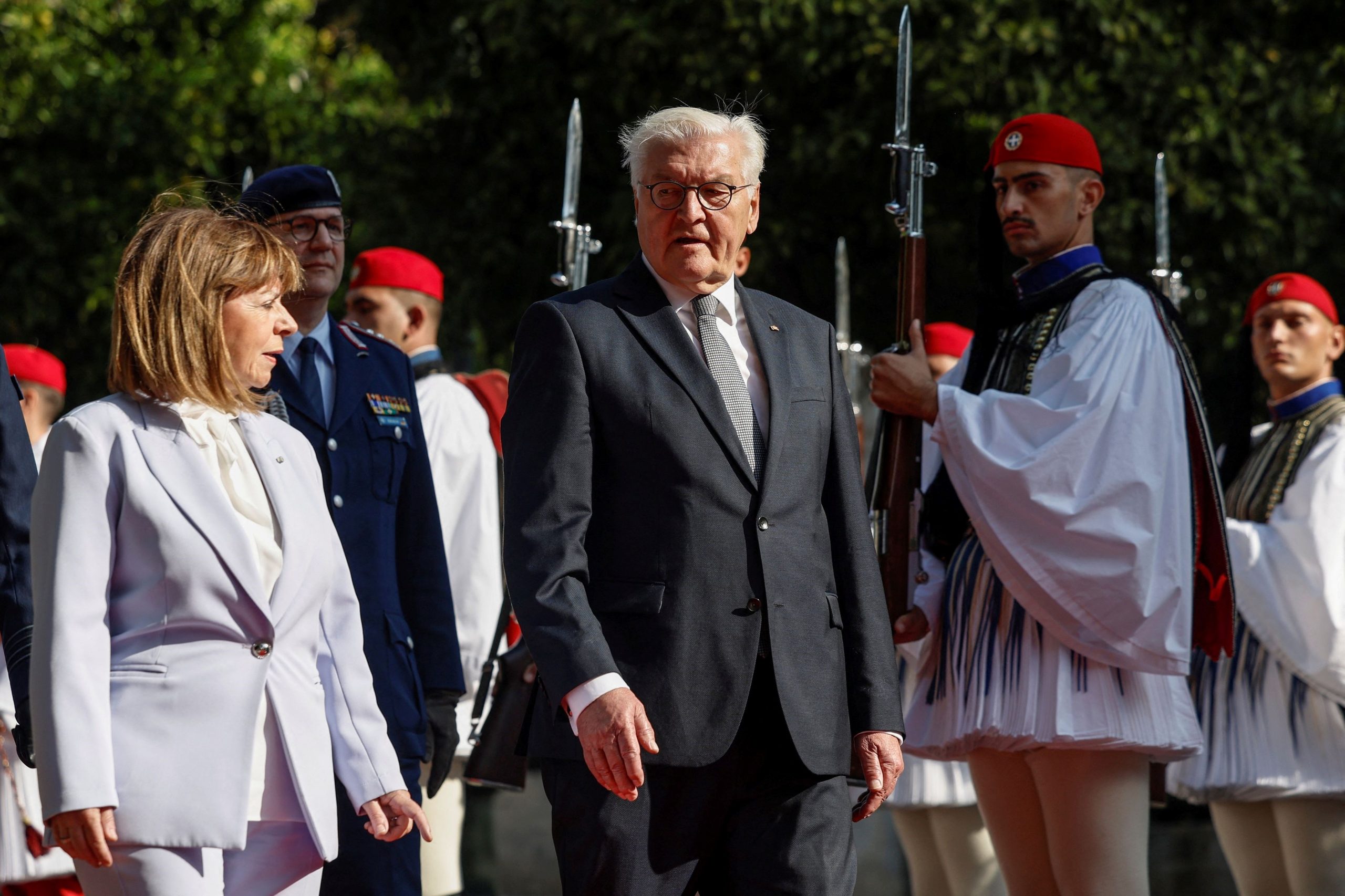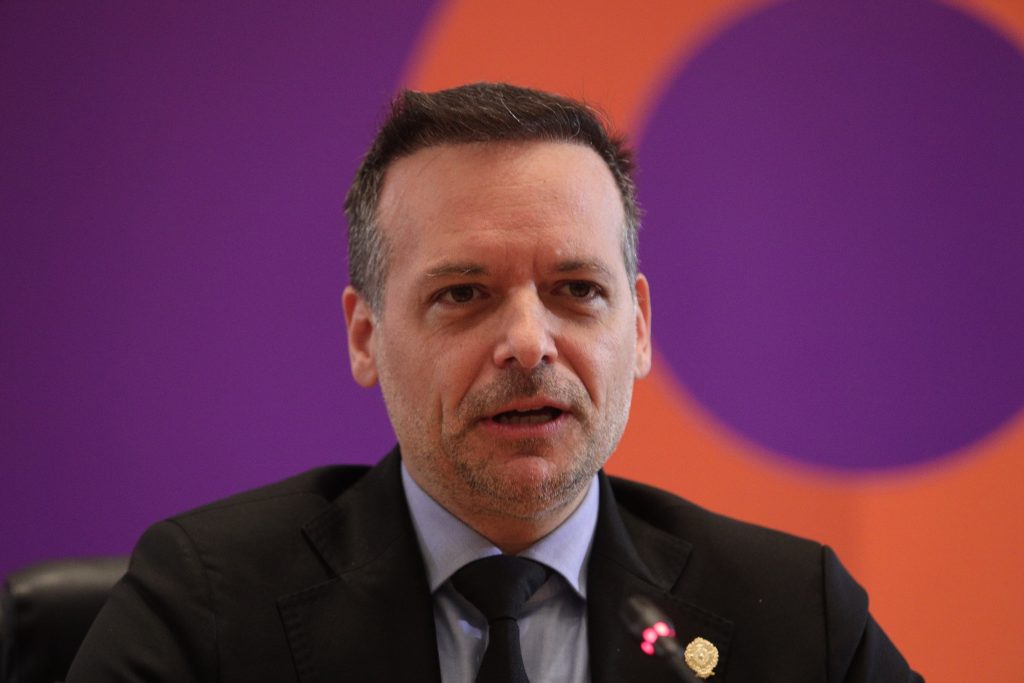Greek leadership on Wednesday again prominently brought up the emotive and explosive issue of WWII reparations demanded from Germany, on the occasion of German Federal President Frank-Walter Steinmeier’s official visit to the east Mediterranean country this week.
While bilateral ties between the two EU, Eurozone and NATO partners have been thoroughly repaired in the wake of Greece’s “bailout era” (2010-2018), which soured relations and even negatively affected perceptions of either country in the other’s public opinion and the press, both Prime Minister Kyriakos Mitsotakis and Greek President Katerina Sakellaropoulou cited the issue in separate meetings with the German head of state after first dispensing with diplomatic niceties and references to bilateral cooperation and common interests.
In a reply to Sakellaropoulou’s statements at the presidential mansion regarding war-time reparations, Steinmeier unflinchingly recited the standing German position on the matter, stating:
“…as far as our legal position on the issue of reparations is concerned, it is different. We are of the opinion that, legally, this issue is considered to have closed, however, we remain committed to our historical responsibility, not only with regard to Thessaloniki but also elsewhere.”
The reference to Thessaloniki, which Steinmeier visited on Tuesday, is the fact that the city’s pre-war Sephardic Jewish community, deemed as the biggest in the world at the time, was practically wiped out in the Holocaust.
“This was also the reason that prompted me to get in touch with those (Jews) remaining in Thessaloniki, with the Jewish community, and to discuss how we could create a memorial for the people who were lost. This was also the start of the idea of creating a museum in Thessaloniki, not only regarding the victims of the Holocaust but also all the victims of the German occupation. And I am especially grateful for the fact that both Greece, and the Greek government, private foundations, but also with the support of Germany, we can now implement this project, the progress of which we saw yesterday in Thessaloniki.”
On Thursday, Steinmeier will visit the site of another Wehrmacht atrocity, and specifically the Kandanos site on the large island of Crete – a development that garnered Mitsotakis’ public praise during their meeting at the latter’s Maximos Mansion.
The Greek premier said the German president’s presence on his native Crete acknowledges the atrocities carried out by German forces during the island’s occupation (May 1941-May 1945).
In echoing Sakellaropoulou, Mitsotakis also underlined that the issue of German war reparations and especially a forced “occupation loan” are still very much “alive”, expressing hope that they can be resolved at some point.
“Occupation loan” in this case was the theft of the Bank of Greece’s (BoG) gold reserves by Nazi forces in 1941.
“…I would like to thank you, personally, for the fact that you have chosen to visit my homeland, the island of Crete, tomorrow and to visit Kandanos, in order to acknowledge, with your presence, the Nazi atrocities that took place on the island during World War II. I think it is a very important gesture,” he said, adding:
“As you know, for Greece the matter of reparations and especially the forced occupation loan are issues that are still very much alive and we hope that at some point we will resolve them. However, I would like to attach great value to your presence in Greece, on Crete. I consider that it is a gesture of great importance for us. So, thank you again for your visit. We look forward to a very productive course towards further strengthening our bilateral relations.
Later on Wednesday, Steinmeier attended a ceremony marking the 150th anniversary of the establishment of the venerable German Archaeological Institute in Athens, while he also toured a reception facility north of Athens for third country asylum seekers that entered Greece as irregular migrants.



